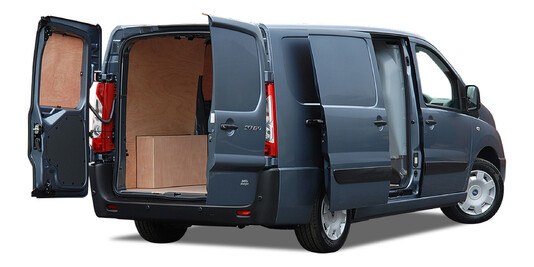The Importance of Customer Service in Van Leasing
Van leasing is a great way to invest in your business. And while we know it’s much more cost-efficient than buying, it’s still […]
June 29th, 2021
Accidents, break-ins, general wear and tear – sometimes damage to vehicles happens. If you have vans on finance, its good to know what to do in the event of damage to your vehicle.
We’ve put together this guide so you know the process for reporting damage, and what can happen if you don’t report damage. We have also given a run down on the guidelines of ‘Fair Wear and Tear’. So that you can ensure you don’t have any unexpected charges at the end of your long-term van lease.
If there has been damage to your vehicle during your long-term van lease, there is a process you should follow to avoid any unexpected charges when your lease comes to an end.
1 – Assess the damage to your vehicle
2 – Contact your funder and notify them of the damage straight away
3 – Your funder will recommend approved garages for the repairs to take place.
4 – Ensure you take your vehicle to an approved garage and the damage is fully repaired.

Most leasing deals require an inspection of the vehicle at the end of the business van lease. If your vehicle is damaged during your lease and you fail to report it, you may incur ‘excess damage’ charges from your finance company. This ‘excess damage’ will have devalued the vehicle beyond the projected depreciation; therefore, these charges recover some of this lost value.
Finance companies understand that during your business van lease, your vehicle is likely to be subject to some minor damage. During the inspection at the end of the lease, your vehicle’s condition will be judged against ‘Fair Wear and Tear’ guidelines. Any minor damage that falls within these guidelines will not incur any ‘excess damage’ charges.
Each finance company will have individual specifications regarding business van lease wear and tear. These are built around the Fair Wear & Tear guidelines set out by the BVRLA (British Vehicle Rental and Leasing Association).
Areas of focus include:

If you happen to have an accident in your business lease van. it’s good to know what to do. In the event of an accident, always call your insurance company as soon as it is safe to do so.
It is then important to notify your finance company, and they will talk you through next steps.
In the unfortunate event that your business lease van is written off at the beginning of your long-term van lease – ‘GAP Insurance’ can help cover the initial cost. Gap insurance covers the shortfall difference between the vehicle value paid out by the finance company, and the cost of the rest of the lease.
Dependent on your business van lease, and the finance option you have chosen, damage to the vehicle will affect you differently.
If you have chosen a Contract Hire finance agreement, your funder will perform a damage inspection on your vehicle when your lease has ended. This is where any ‘excess damage’ will be noted and you may incur charges.
Finance Lease vans will be valued at the end of the term if they are to be part-exchanged in order to take advantage of leasing deals on newer models. In this case you would not be subject to any ‘excess damage’ charges. However, any damage to the vehicle would devalue it for part-exchange.
Hire Purchase vans are owned by the lessee at the end f the lease. Therefore no inspection would take place, and any damage would be the responsibility of the owner.
If you still have questions or you would like to know more about any of the topics we have mentioned here, please call us on 0117 962 5314 to speak to one of our Van Leasing Specialists
Van leasing is a great way to invest in your business. And while we know it’s much more cost-efficient than buying, it’s still […]
Looking for a large van lease, but you’re not sure which van to choose? We’ve got you covered. In this article, we’ll walk […]
Whether you’re a window cleaner needing to transport a 1000L tank, or you just need to make sure you can get materials and […]
Leasing a vehicle has lots of benefits for businesses. You’re able to spread the cost of your vehicle across the term of the […]
Commercial pick-ups are versatile, multi-functional vehicles. You can carry heavy loads, tow, and even transport your team. With major manufacturers offering great commercial […]
Finding the right van for you and your business is important. As the best-selling commercial vehicle in the UK the Ford Transit Custom […]
As we all pay more attention to how we are affecting the environment, you may have considered how you can reduce the environmental […]